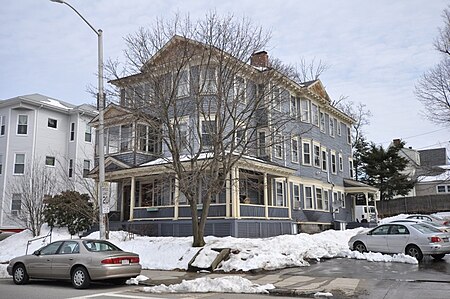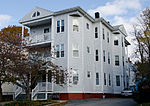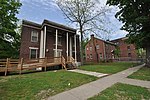John B. McDermott Three-Decker

The John B. McDermott Three-Decker is a historic triple decker in Worcester, Massachusetts. Built c. 1910, it is distinctive for its preservation, and the scale and profusion of its Colonial Revival details. It has a typical side hall plan with a side bay, and a hip roof that is unusual for the presence of pedimented gable sections. The cornice of the roofline is decorated with evenly spaced heavy brackets. The front entry is highlighted by a two-story gable-end pedimented porch, of which the first floor section wraps around to the right side of the building. The porch is supported by slender round columns, and its roof has bracketing similar to that of the main roof.The building was listed on the National Register of Historic Places in 1990.
Excerpt from the Wikipedia article John B. McDermott Three-Decker (License: CC BY-SA 3.0, Authors, Images).John B. McDermott Three-Decker
Lowell Street, Worcester
Geographical coordinates (GPS) Address Nearby Places Show on map
Geographical coordinates (GPS)
| Latitude | Longitude |
|---|---|
| N 42.246388888889 ° | E -71.825 ° |
Address
Lowell Street 18
01610 Worcester
Massachusetts, United States
Open on Google Maps











